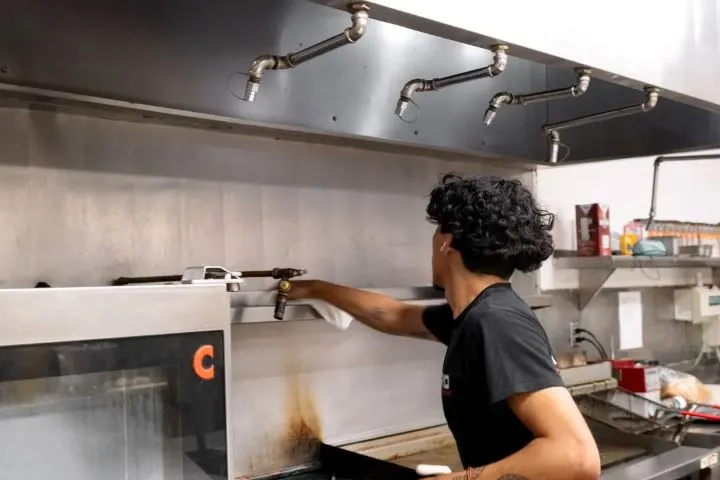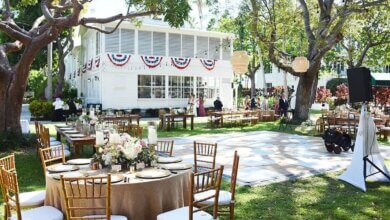Why the Kitchen Fire Suppression System – UL 300 is a Must-Have for Commercial Kitchens

In today’s fast-paced foodservice industry, kitchen safety is not just a best practice — it’s a legal and operational necessity. Commercial kitchens are high-risk environments, especially due to the open flames, high-temperature appliances, and flammable oils used daily. One of the most effective safeguards against devastating fires is the kitchen fire suppression system – UL 300. This essential technology is not only critical for protecting people and property but is also required by fire safety codes across the United States and other parts of the world.
In this article, we’ll explore what the UL 300 standard entails, why it’s crucial for modern commercial kitchens, how these systems work, and how businesses can ensure compliance and safety.
Understanding the UL 300 Standard
The UL 300 standard was introduced by Underwriters Laboratories in 1994 to address the limitations of older kitchen fire suppression systems. Prior to this, many systems were designed to fight fires involving animal fats and traditional cooking oils, which burn at lower temperatures than the vegetable oils used in today’s commercial kitchens.
UL 300 was developed in response to the evolution of kitchen cooking techniques and ingredients. The standard requires fire suppression systems to be:
-
More effective at extinguishing hotter, faster-burning fires caused by modern vegetable oils.
-
Designed to cool the oil to below its ignition point to prevent re-ignition.
-
Capable of suppressing fires in high-efficiency appliances like deep fryers and griddles.
Because of this, any kitchen fire suppression system – UL 300 compliant system is far superior to its outdated counterparts and is designed specifically to handle modern fire scenarios.
Why UL 300 Compliance is Essential
1. Legal and Insurance Requirements
Most fire codes and local authorities now mandate that all commercial kitchens install UL 300-compliant fire suppression systems. Insurance providers also often require UL 300 certification as a condition for coverage. If your system is not UL 300 compliant, you may be at risk of code violations, increased insurance premiums, or denied claims after a fire.
2. Enhanced Safety
Fires in commercial kitchens can escalate rapidly, especially with the presence of super-heated oils and high BTU appliances. The kitchen fire suppression system – UL 300 is specifically engineered to extinguish these fires quickly, minimizing damage and safeguarding lives.
3. Reduced Downtime and Financial Loss
A fire in a restaurant or commercial kitchen can shut down operations for days, weeks, or even permanently. With an effective suppression system in place, fires are extinguished before they spread, reducing the impact on business continuity.
How a Kitchen Fire Suppression System – UL 300 Works
These systems are typically pre-engineered and installed directly over cooking appliances such as fryers, ranges, broilers, and grills. Here’s how the system functions:
-
Detection: Heat-sensitive links or sensors detect excessive heat or flames, triggering the system.
-
Suppression: Once triggered, the system releases a wet chemical agent designed to:
-
Smother the flames.
-
Cool down hot surfaces and oils.
-
Create a soapy blanket over the oil to prevent re-ignition (known as saponification).
-
-
Gas Shut-Off: In most systems, the gas or electrical supply to cooking equipment is automatically shut off to eliminate the fuel source.
-
Alarm Activation: The fire alarm system is typically connected to alert occupants and emergency services.
This automated process allows the system to respond within seconds of a fire starting — faster than human intervention in most cases.
Key Features of UL 300-Compliant Systems
If you’re shopping for or upgrading to a kitchen fire suppression system – UL 300, look for the following features:
-
Wet chemical agents: These are specially formulated to extinguish grease and oil fires.
-
Overlapping nozzle coverage: Ensures all cooking equipment is adequately protected.
-
Automatic and manual activation: Allows for system engagement both by heat detection and manual pull stations.
-
Appliance-specific coverage: UL 300 systems are custom-designed to fit the layout of your kitchen and its appliances.
-
Regular maintenance access: UL 300 mandates routine inspections and maintenance to ensure effectiveness.
Maintaining Your Kitchen Fire Suppression System – UL 300
Compliance with UL 300 doesn’t end at installation. Proper inspection and maintenance are crucial to ensure the system will function in an emergency. According to NFPA 17A and NFPA 96, these are the basic maintenance requirements:
-
Semi-annual inspections by a certified fire protection professional.
-
Immediate servicing after any system discharge.
-
Routine cleaning of nozzles and other components that may become clogged with grease.
-
Testing of detection and actuation mechanisms to ensure proper function.
Failing to maintain your suppression system could lead to code violations and ineffective fire response in a critical situation.
Retrofitting to a UL 300-Compliant System
If your existing kitchen still has a dry chemical system or any system installed before the mid-1990s, it’s time to consider a retrofit. Upgrading to a UL 300 kitchen fire suppression system is a smart move that protects your investment and ensures your business meets safety standards.
The retrofit process typically involves:
-
A site assessment and kitchen layout evaluation.
-
Removal of outdated systems.
-
Installation of new wet chemical systems and custom nozzles.
-
Integration with existing fire alarm and gas shut-off systems.
-
Final inspection and certification by local authorities.
While retrofitting involves an upfront cost, the long-term benefits in safety, compliance, and insurance savings are significant.
Choosing the Right Provider
When selecting a system installer or service provider, look for:
-
UL-listed products specifically designed for commercial kitchens.
-
Technicians certified in UL 300 system installation and maintenance.
-
A company that offers regular inspection services and emergency support.
-
References from other commercial kitchen operators in your area.
Professional installation and maintenance are non-negotiable for safety and legal compliance.
Final Thoughts
The kitchen fire suppression system – UL 300 is a critical part of any commercial kitchen’s fire safety strategy. From restaurants and hotels to schools and hospitals, these systems offer unparalleled protection against the most common and dangerous types of kitchen fires. Investing in a compliant system not only fulfills legal obligations but also demonstrates a commitment to safety for your staff, customers, and business as a whole.




